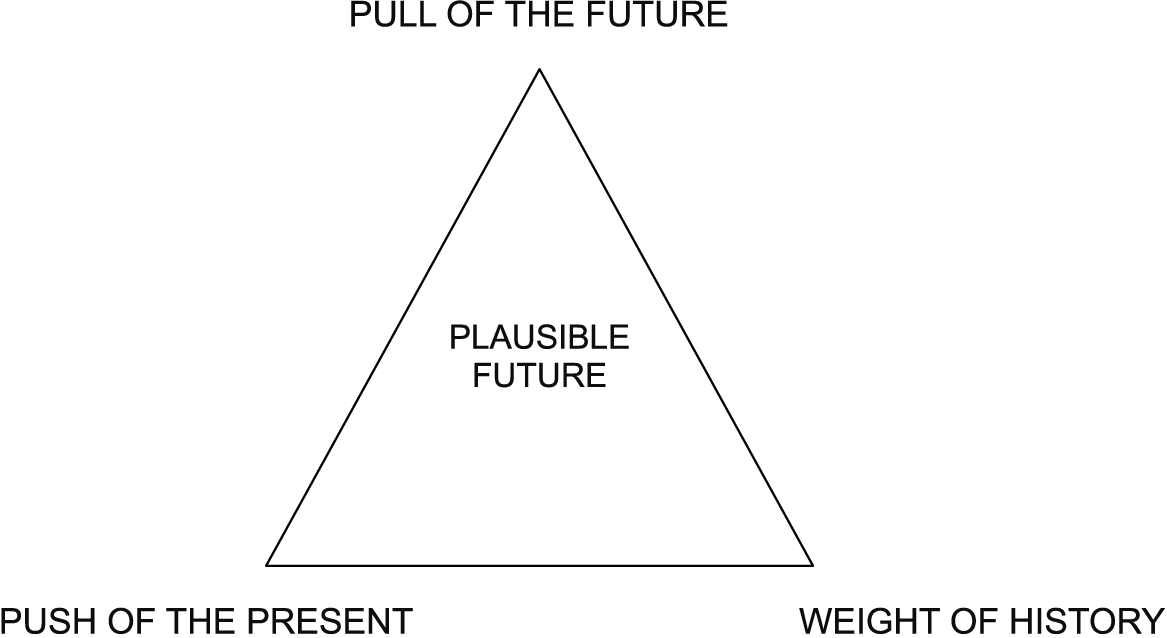It is one of the most fascinating topics now being taught in business schools.
Future thinking has been described as a cross-disciplinary approach to thinking about different ways the future might unfold, based on the exploration of trends and drivers for change. Students are urged to evaluate what scenarios are possible, and which are probable – as well as those that are preferable.
Looking into the future is, of course, an inexact ‘science’. Even if we have reams of data that suggest a predictable outcome, the world has a habit of throwing in a randomizing factor that changes the course of the future.
Futures thinking can be thought of as a capability that allows people to better understand the role that the future plays in what they see and do. We can become more skilled at ‘using the future’ and become more ‘futures literate’: we can learn to imagine the future for different reasons and in different ways.
I have found myself regularly using one particular model, the Futures Triangle. Developed by Sohail Inayatullah, it is a tool for exploring plausible futures. Its three dimensions help us think about factors that shape the future: the weight of the past (or barriers); the push of the present (drivers); and the pull of the future (ambitions).
The triangle prompts us to unpack those factors and think about how we respond to them. How does the future draw us forward – in our defined plans, but also in the wishes, dreams and ambitions that are not yet cast into plans and strategies? When we think about the push of the present, we might ask, what is driving us to move forward and sharpen our focus? What challenges us to adapt in the moment and develop solutions and options right now? The triangle also prompts us to reflect on the weight of our history: offering certainty and stability, or holding us back, limiting our potential velocity, creativity and impact.
Futures thinking is a powerful way of exploring the array of complex issues that we face today.
Perry Timms is founder and chief energy officer of PTHR, a consultancy aiming to create better business for a better world. He is a TEDx speaker, top-selling author, and number one on HR Magazine’s 2022 Most Influential Thinkers list.

